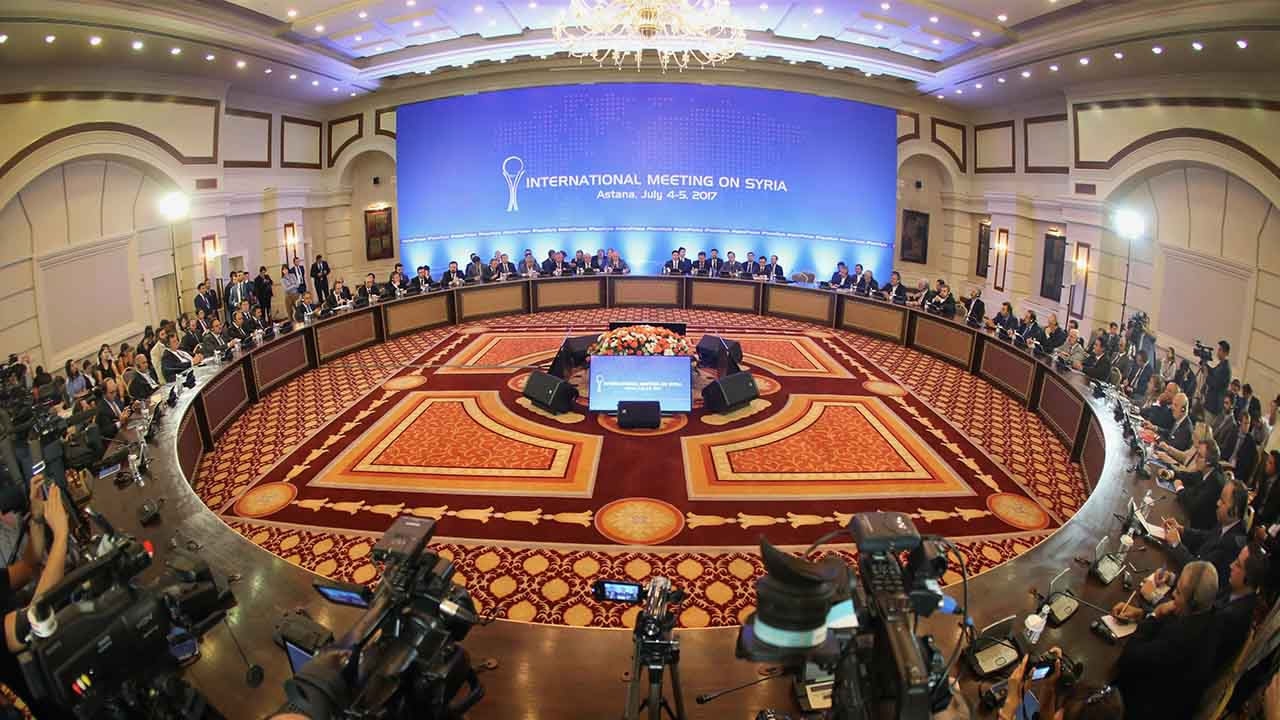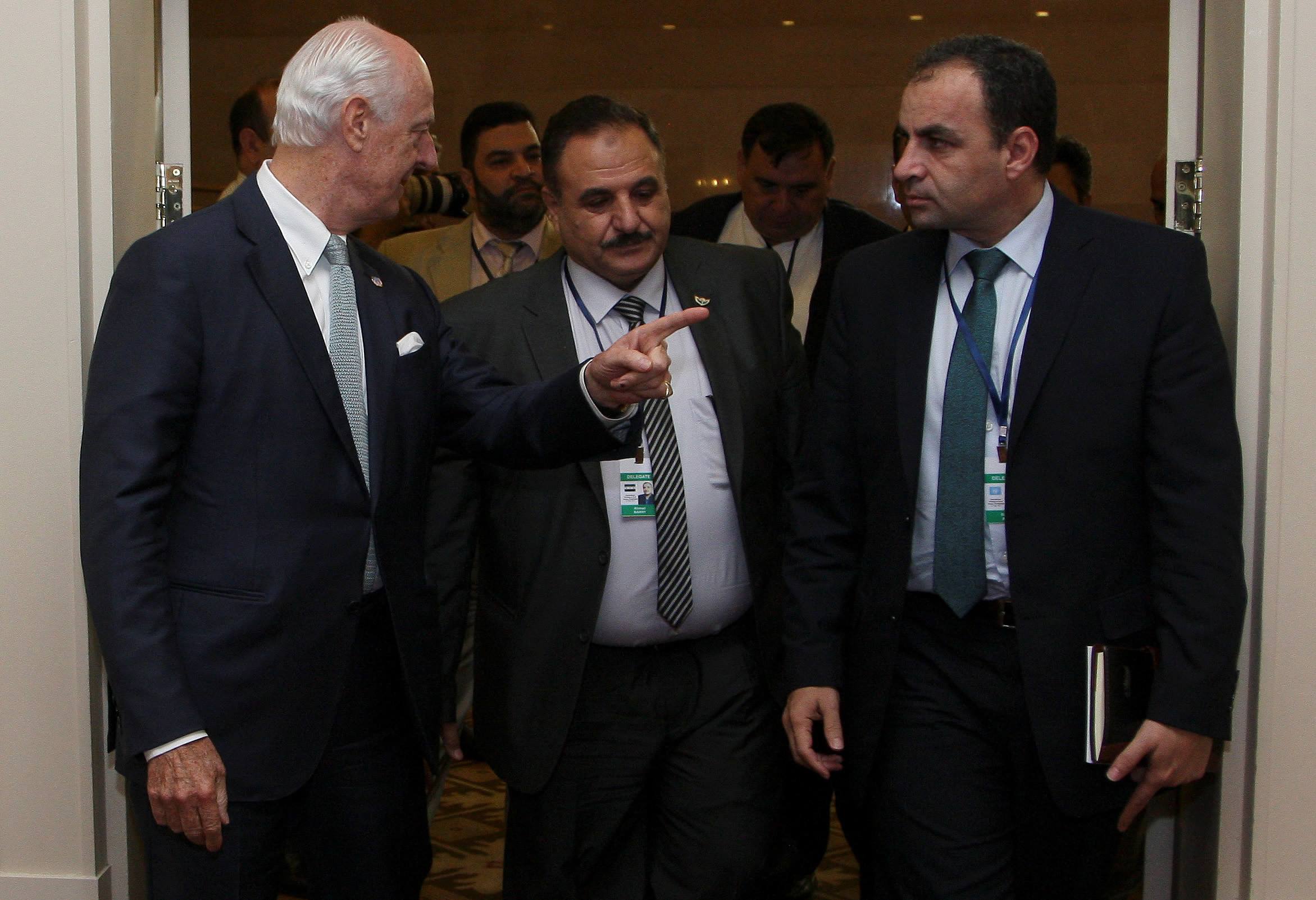
Politics
11:33, 06-Jul-2017
Russia, Turkey, Iran fail to agree on Syria de-escalation zones

Russia, Turkey and Iran have failed to finalize the agreement on the establishment of de-escalation zones in Syria during the latest peace talks, which wrapped up on Wednesday in the Kazakh capital of Astana.
Delegations from the Syrian government and Syrian opposition forces as well as observers from the United Nations, the United States and Jordan, also participated in the two-day talks with Russia, Turkey and Iran.
The Turkish side had asked for more time in order to make an appropriate decision, Russian negotiator Alexander Lavrentyev said after the talks, noting that documents outlining how the four zones should work "need finalizing".

UN special envoy for Syria Staffan de Mistura and Ahmed Beri, chief of staff of the Free Syrian Army, attend the new round of Syria peace talks in Astana, Kazakhstan, July 5, 2017. /VCG Photo
UN special envoy for Syria Staffan de Mistura and Ahmed Beri, chief of staff of the Free Syrian Army, attend the new round of Syria peace talks in Astana, Kazakhstan, July 5, 2017. /VCG Photo
Russia, Turkey and Iran said that they respect the sovereignty and territorial integrity of Syria, and believe that the Syrian conflict could only be resolved through political means, it added.
Russia and Iran, which back President Bashar al-Assad's government, and Turkey, which supports some of the rebels, will continue to hold talks on de-escalation zones at the end of August, when their delegations are expected to meet again in the Kazakh capital.
Russia, Turkey and Iran signed a memorandum on creating four safe zones in Syria in May with the aim of easing tensions in the war-torn country.
US Secretary of State Rex Tillerson on Wednesday said the United States is willing to cooperate with Russia to discuss joint efforts to stabilize the volatile situation in Syria, including cooperating on ensuring ceasefire and establishing no-fly zones.
(With inputs from Xinhua)
3658km
Related stories:

SITEMAP
Copyright © 2018 CGTN. Beijing ICP prepared NO.16065310-3
Copyright © 2018 CGTN. Beijing ICP prepared NO.16065310-3